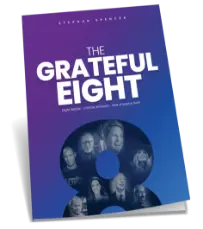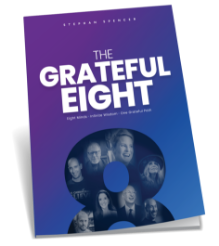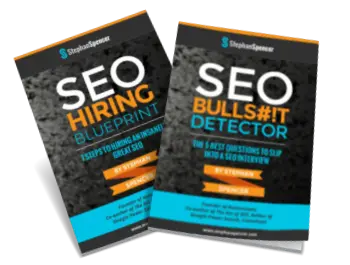EPN TV: Stephan Spencer talks SEO for Affiliate Marketers
Well, I just wanted to reverse-engineer the search engine’s algorithms. I actually started before Google even existed, back in the days of Infoseek and WebCrawler and that. So, I just kind of wanted to figure out how the black box worked. I kind of co-wrote the Bible on SEO. This is The Art of SEO. And it’s actually more science than art, but yeah, it’s a great fundamentals book. It’s really soup to nuts what you need to know, and it’s even used as a textbook in universities.
You have to keep up with the algorithms. You also have to be ahead of the game in terms of what your competition’s doing. You can reverse engineer what your competitors are doing. You can use tools such as SEMrush to see what featured snippets they’ve gotten and go after them, or you can maybe steal some of their featured snippets. My best advice for those who are concerned about algorithm updates is either Fred or Panda or Penguin or some other algorithm update that’s even unnamed. Algorithm updates happen all the time, and they’re going to happen in the future constantly.
In fact, it’s going to be hard to try and recover from a situation, or you’ve already gotten penalized. It’s best to be preventative in your behavior. So don’t do stuff that is at all gray hat, certainly not black hat, but gray hat stuff, things that you wouldn’t be embarrassed to tell a Google engineer you should not be doing. And think in terms of the AI, the artificial intelligence, machine learning, the algorithms are gonna be smarter than you at sniffing out what is spam and what’s legit. So, spinning articles, paraphrasing them, and rewriting them.
Using Markov chains, any of that sort of nonsense that is not focused on adding massive value to the user is gonna get sniffed out. One of them is to focus on revenue over users, and that’s gonna get you either penalized, or it’s gonna hurt your engagement metrics, which will eventually mean your rankings will drop.
Because user engagement is a critical signal or set of signals, it’s not like Google is spying on your Google Analytics. They say that they are not doing that, and I believe them. But they are looking at dwell time, and they’re looking at the click-through rate from the search results. If somebody pogo sticks going from your site to another site in the search results very quickly, that tells Google that your site is not very good. You want to really focus on delivering value to the user.
Yeah, so offsite SEO is really about link building and content marketing, creating something that is so link-worthy that people can’t resist linking to it. So think of it as remarkable content. I use the word remarkable very deliberately because the definition of remarkable, according to Seth Godin, is worth remarking about. If you have that, you have a great starting point. And from there, you can do outreach to influencers, specifically the linkerati, not just any old influencer on Instagram or on Pinterest or any of these social networks, which isn’t necessarily a power user as far as Google sees them. An influencer in the eyes of Google is the Linkerati.
My advice around title tags and around creating a link architecture that’s based on the strategic use of your link authority. When people link to you, they typically link to your home page. They’re not linking to a deep page in your site, some product page, or an FAQ page. They’re linking to your home page. And so how you link is basically the way that you spend your page rank, your link authority. Now, you can’t see what your page rank is. That’s a top-secret algorithm inside of Google. Even back in the day, when they provided some indication of what your page rank was, it was just kind of for entertainment purposes only.
Nowadays, you try to get authority and trust to flow to your site’s most important pages. Let’s say you have a really critical product page, service page, or article. If you’re not linking to it from your homepage, you’re missing out because you need to pass a massive amount of page rank to that page from your homepage. So that’s one critical piece of tried-and-true advice. Another one is around title tags, the most important element on the page.
It’s given the most weight by search engines, and most of the time, people have not. Really thought through what their most important keyword is for the page, and they haven’t incorporated that into the title tag early on in the title tag, not at the very end. Also, they didn’t reinforce that same keyword theme in their body copy, so they just dropped it into the title tag, and they think they’re done, but they’re not. They didn’t reinforce that, so this page doesn’t really seem to be about that topic because it was just mentioned once in the title tag, which is almost like an afterthought.I guess the most important strategy change that people need to understand is the focus on machine learning and artificial intelligence. That you’re not going to be able to outsmart the Google algorithms because they’re going to be smarter than us. SEO is about strategy more than tactics. In The Art of War, Sun Tzu said tactics without strategy is the noise before defeat. So, I think strategy is the solution.


